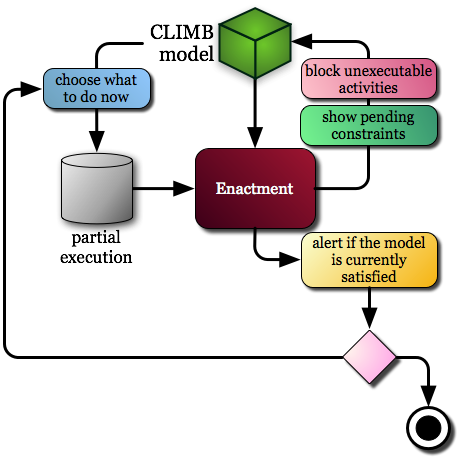Enactment

An ongoing work concerns the enactment of CLIMB models. As shown by Pesic and van der Aalst in DECLARE, enactment of declarative constraint-based models mainly consists of:
- blocking activities which will surely lead to violate the model;
- showing currently pending constraints (i.e., constraints which are currently violated but still satisfiable in the future).
A model is said to be satisfied at a certain time if all constraints are satisfied at that time. If the model is satisfied, then the user can decide either to terminate its execution or to perform some further activity (obviously, such a decision could take the model back to an unsatisfied state).
The basic idea in CLIMB is to realize enactment by exploiting consistency verification, taking also into
account the partial execution trace of already executed activities:
- at a certain time, pending constraints are constraints which involve pending expectations (i.e., expectations which have not yet been fulfilled);
- at a certain time, an activity must be blocked if its execution will consequently lead the model to a conflict.